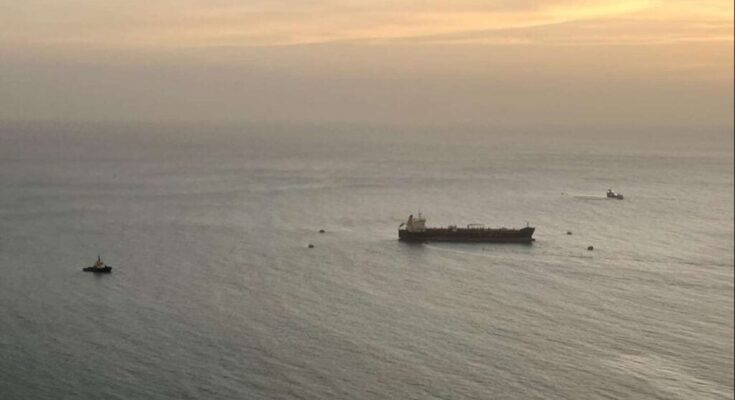
Greece is taking a leading role in efforts to tow the damaged oil tanker, the MT Sounion, which has been drifting in the Red Sea since a Houthi rebel attack last week.
The incident has raised fears of a significant ecological disaster if its cargo leaks.
Greece coordinates Sounion rescue efforts
A new video of the attack has surfaced, following a previous release by the Houthis on August 23rd. Bloomberg reports that the rescue plan results from coordination between Greek Prime Minister Kyriakos Mitsotakis, European partners, and key regional players, including Saudi Arabia’s Crown Prince Mohammed bin Salman.
Greece has also used diplomatic channels with Iran, a key supporter of the Houthi fighters.
Global efforts to transfer oil and secure the tanker
Under the rescue plan, the oil will be transferred from the Sounion to another ship and the damaged tanker towed to a safe port, most likely in Djibouti. This was revealed by sources familiar with the situation, who asked to remain anonymous due to the sensitivity of the discussions.
The Houthis initially threatened to prevent any attempt to tow the ship but later agreed to allow for its removal. Ships from Italy, France and Greece, participating in the European Union’s naval operation “Aspides” will escort the oil tanker. They expect the Saudis to oversee the oil transfer, according to the same sources.
Greek Foreign Minister Giorgos Gerapetritis confirmed today that he had spoken with the Saudi foreign minister to ensure that “this matter will be handled as safely as possible.” The Greek-flagged Sounion was carrying 150,000 tons of crude oil from Iraq when it was hit by Yemen’s Houthi fighters.
The crew was rescued, but parts of the ship caught fire. It is still unclear if there is an oil leak. A Pentagon representative noted that the ship seems to have a leak, raising the possibility of an environmental disaster, but representatives of the “Aspides” operation denied this claim.
Risks of environmental damage and crisis management
The news agency points out that a major oil spill would have devastating consequences for the coasts of Yemen and neighboring countries. In the worst-case scenario, if the entire cargo of the Sounion were to spill into the Red Sea, it would be the fifth-largest such oil spill disaster in history.
Such an event would surpass incidents like the 2018 Sanchi spill near China, emphasizing the potential severity of the situation. The involved parties are working closely to prevent an environmental catastrophe that could impact the entire region.
Greece is cooperating with European allies and navigating regional complexities, and it aims to secure both environmental safety and geopolitical stability in the Red Sea.



